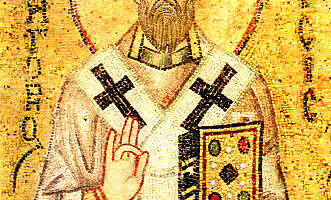Criticism on Pelé’s role in the fight against racism is frequent. Even former players and teammates in the national team, like Paulo Cesar Caju, charge “the King” with some guilt for racism in football.
There is some truth to the criticism, since, undoubtedly, Pele has given unfortunate statements (like, for example, when he wrongly criticized the impeccable acts of Daniel Alves and Aranha against racist acts suffered by them) and has never actively participated in antiracism movements and with those defenders of black people’s rights in Brazil and all over the world; he has never behaved like other sports legend from his time, American boxer, Muhammad Ali. Even if it would be anachronistic to attack “The King” for that omission during his career (after all, there was not in that time a strong and combative anti racism sentiment among Brazilian celebrities), there are strong arguments to criticize Edson Arantes do Nascimento’s stance, from his retirement to today, for not following society’s evolution on that subject.
However, although ideal and worthy of praise, it is essential to say that Pelé (or any other person) had no obligation of getting personally involved in militancy of any kind. Nonetheless, even not participating in “black activism”, Pelé, specially during his reign as football’s superstar (1958-1977), was important in the fight against racism. For that, it was only needed the blackness of the most popular sport’s greatest player and worldwide idol in extreme racist time. In that position, he shattered almost unbroken barriers, like being treated as royalty and living legend in Europe, and being the first black man on the cover of “Life Magazine” (from a country, United States, where segregation laws were still common. Furthermore, Pele was an inspiration for many by not being ashamed of his skin color; that was the opinion of his time and of the legendary journalist Mário Filho (author of the classic book “O negro no futebol brasileiro” – “The black man in Brazilian football), as explained by Brazilian historians Francisco Carlos Teixeira da Silva and Ricardo Pinto in the book “Futebol e Política – Memória Social dos Esportes” ( “Football and Politics – Social memory of sports – free translation):
According to Mário Filho, the recrudescence of racism in result of Brazil’s defeat in the 1950 Final would only be defeated with the winning Brazilian team in the 1958 World Cup. That overcoming would pass through the magical feet of a mulatto and a black man, respectively, Garrincha and Pelé. Actually, it was up to Pele to change the status of the black player. Differently from the great black players from the past, Pele was not ashamed of his skin color, he was proud of being black. He liked being called “the Negro”, “The black man”. That behavior from the best Brazilian player was an example for the other players who still felt inferior because of their skin color. Because of that, the journalist concludes: “Someone like Pele was missing to complete the work of Princess Isabel (note: she signed the law the emancipated slaves in Brazil). The black man was free, but felt the curse of color. The slavery of color”.
That is why, in opposite to what people like Caju says, Pelé, even passively, was essential in the fight against racism in Brazil and the world. That was done without violence, without incendiary speeches*; it was enough being black, it was enough being Pelé, like the great Mario Filho taught us (free translation):
The black players in football really tried, as they rose, to be less black, They had their hair straightened, did plastic surgeries, escaping their color
There lies Pele’s important role, the Kind of Football, who is proud to be black. Not to confront anyone, but to exalt his mother, father, grandfather, uncle, the poor family of black people who prepared him for glory.
No black man in the world has contributed more (note: it was written in the early 60’s) to sweep racial barriers than Pele. Whoever applauds him, applauds a black man. That’s why Pele never had his hair straightened: he is black like his father, like his mother, like his grandmother, like his uncle, like his brother. To exalt them, he exalts the black man.
That’s why he is more than a black man: he is the “Black man”. The others black players recognize him: for them, Pele is just “the Negro”.

Pele with his parents and sister.
Photo taken from: http://blogmiltonneves.bol.uol.com.br/blog/2014/10/23/hoje-e-o-natal-do-futebol-obrigado-pele/
*Indispensable to say that I don’t undervalue the imense value of passionate speeches and direct and express fights against racism. They were and still are essential…





